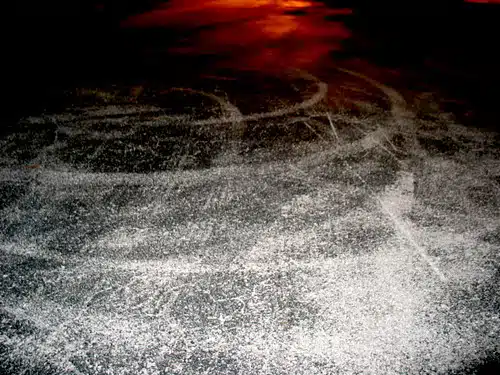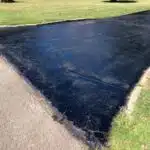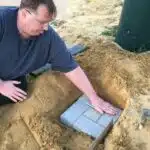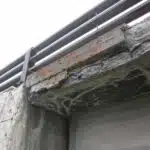Asphalt driveways are a popular choice among homeowners due to their durability and low maintenance requirements. However, like any other surface exposed to the elements, asphalt can wear down over time and develop cracks, potholes, and other damages. If left unaddressed, these issues can worsen and lead to costly repairs or even replacement of the entire driveway. As an experienced asphalt driveway repair specialist, it is my duty to help homeowners learn how to identify common damages and provide them with the necessary knowledge and tools to repair their driveways effectively.
In this article, I will guide you through the process of repairing your asphalt driveway step-by-step. We will cover everything from assessing the extent of the damage to selecting the right materials and tools for the job. By following these guidelines, you will be able to restore your driveway’s functionality and improve its appearance without breaking the bank. Whether you are a seasoned DIY enthusiast or a first-time homeowner looking to save money on repairs, this article will provide you with valuable insights into maintaining your asphalt driveway’s longevity for years to come.
Understanding The Composition Of Asphalt
Asphalt driveways are a popular choice among homeowners due to their durability and cost-effectiveness. Understanding the composition of asphalt is key in maintaining a well-maintained driveway. Composed of small rocks, sand, and asphalt cement, the combination creates a strong and long-lasting material.
Despite its strength, asphalt can still experience issues such as cracking, potholes, or heaving. These common issues can occur due to a variety of causes such as extreme weather conditions or heavy traffic. Cracking occurs when the asphalt expands and contracts due to temperature changes, while potholes form when water seeps into the cracks and then freezes and thaws repeatedly.
Identifying these common asphalt driveway damages early on will help prevent further damage that may require extensive repairs. In the next section, we will discuss how to identify these damages and provide tips on how to repair them efficiently.
Identifying Common Asphalt Driveway Damages
Cracking in an asphalt driveway is a common problem caused by the aging of the asphalt, water infiltration, and/or the movement of underlying soil. Potholes occur when water infiltrates into the asphalt and softens the surface, leading to the formation of a crater. Sinking of an asphalt driveway can be caused by a number of factors, including soil compaction, erosion, and failure to compact the asphalt adequately during installation. Proper preventive maintenance can help reduce the risk of these issues in asphalt driveways. In the event of such damages, repair involves filling the affected areas with a suitable material and then overlaying the area with a fresh layer of asphalt. Sealcoating is also an effective way of preventing future damage to an asphalt driveway.
Cracking
When identifying common damages on an asphalt driveway, one of the most noticeable is cracking. Cracks can range from small hairline fractures to larger, more severe openings. These cracks can be caused by a variety of factors such as weather changes, heavy traffic, and poor installation. Regardless of the cause, it is important to address cracks promptly in order to prevent further damage.
One way to repair cracks in an asphalt driveway is through sealing. Sealing helps to prevent water penetration which can lead to further damage and deterioration of the asphalt surface. It also helps to improve the appearance of the driveway by filling in any unsightly cracks. However, it is important to note that sealing should only be done when the temperature outside is above 50 degrees Fahrenheit and no rain is expected for 24 hours.
Prevention is always better than cure when it comes to asphalt driveway repairs. To prevent future cracking, avoid parking heavy vehicles on the same spot for extended periods of time and refrain from using sharp objects such as snow shovels or plows directly on the surface. Additionally, routine maintenance such as cleaning debris off the surface and reapplying sealant every few years can go a long way in preserving the life of your asphalt driveway.
Potholes
Asphalt driveways are known for their durability, but they are not indestructible. One of the most common asphalt driveway damages is potholes. Potholes can be a result of various factors such as heavy traffic, weather changes, and poor installation. They can vary in size and depth and can pose safety hazards to both pedestrians and vehicles.
Preventing potholes is key to maintaining the health and longevity of an asphalt driveway. One way to prevent potholes from forming is by filling any cracks or holes immediately after they appear. This will prevent water from penetrating the surface, which can cause further damage. Additionally, avoiding parking heavy vehicles on the same spot for extended periods of time and using gentle snow removal techniques can also help prevent potholes from forming.
In cases where potholes have already formed on an asphalt driveway, there are several repair techniques available. These include patching, resurfacing or overlaying the existing surface with new asphalt. Patching involves removing the damaged area and replacing it with new asphalt while resurfacing involves applying a new layer of asphalt over the existing surface. Overlaying involves placing a thin layer of new asphalt over the entire surface, creating a seamless appearance. It is important to consult with an experienced asphalt repair specialist who will assess the extent of damage and recommend the best course of action for repairing potholes on your driveway.
Sinking
As an experienced asphalt driveway repair specialist, it is important to be able to identify common damages that can occur on a driveway. One of these damages is sinking, which can be caused by various factors such as poor installation and soil erosion. Sinking can result in an uneven surface that poses safety hazards to both pedestrians and vehicles.
Preventing sinking is crucial to maintaining the health and longevity of an asphalt driveway. One way to prevent sinking from occurring is by ensuring proper installation with a solid foundation and adequate drainage. Additionally, avoiding parking heavy vehicles on the same spot for extended periods of time and regularly inspecting the surface for any signs of sinking can also help prevent further damage.
In cases where sinking has already occurred on the edges of an asphalt driveway, there are several repair techniques available. These include filling the sunken area with new gravel or stone base material and reapplying a layer of asphalt over the affected area. It is important to consult with an experienced asphalt repair specialist who will assess the extent of damage and recommend the best course of action for fixing sinking edges on your driveway. By being proactive in preventing and addressing sinking issues, you can ensure your asphalt driveway remains safe and functional for years to come.
Assessing The Extent Of The Damage
Before starting any repair work on an asphalt driveway, it is essential to assess the extent of the damage. This step involves inspecting the entire surface to determine which areas require repair and what type of repair options are available. The most common types of damage that asphalt driveways experience include cracks, potholes, and alligator cracks.
Once you have identified the damaged areas, you can start exploring your repair options. For small cracks or potholes, a simple patching solution may suffice. However, more severe damage may require more extensive repairs such as resurfacing or replacing sections of the driveway. It is crucial to weigh up all options and consider factors such as cost estimation and long-term durability before deciding on a course of action.
In conclusion, assessing the extent of damage is an essential step in repairing an asphalt driveway. By carefully inspecting the surface and exploring your repair options, you can determine the best course of action for your specific situation. The next step is preparing the surface for repair by cleaning and removing any debris from the damaged area.
Preparing The Surface For Repair
Surface Cleaning is an essential step to prepare the asphalt driveway for repair. This step ensures that the surface is free of debris and loose particles that can interfere with the repair process. First, remove any grass or weeds growing on the surface by hand or using a weed killer. Then, use a broom or blower to eliminate dust and debris from the surface.
Equipment Needed for surface cleaning includes safety gloves, protective eyewear, a broom or blower, and a power washer. Before using a power washer, ensure that it is not set at high pressure as it can damage the surface. A low-pressure setting is recommended to avoid damaging the asphalt further. Power washers are highly effective in removing stubborn stains like oil spills from the driveway.
Now that you have cleaned the surface thoroughly, it’s time to move on to filling small cracks and potholes. But before doing so, make sure that there are no major damages like large potholes or extensive cracking on the surface that require professional intervention. It’s always best to assess the overall condition of your asphalt driveway before beginning any repairs.
Filling Small Cracks And Potholes
Asphalt driveways are a popular choice for many homeowners due to their durability and resilience. However, over time small cracks and potholes can develop, which if left untreated, can lead to more significant damage. To ensure your asphalt driveway remains in good condition, it’s essential to fill these small cracks and potholes promptly.
Using a high-quality sealant is the most effective way to fill small cracks and potholes. This material will help prevent water from seeping into the asphalt, which can cause further damage. Before applying the sealant, clean the affected area thoroughly with a brush or broom to remove any debris or loose asphalt. Then, apply the sealant using a caulking gun and smooth it out with a putty knife.
If you’re unsure about filling small cracks and potholes yourself, consider professional help. A reputable asphalt repair specialist has the necessary tools and expertise to complete the job correctly. Additionally, they may be able to identify any underlying issues that could be causing the damage and provide additional solutions.
- Filling small cracks and potholes early on can save you money in the long run.
- Using a high-quality sealant prevents further damage from occurring.
- Hiring a professional ensures that the job is done correctly.
- Neglecting small cracks and potholes can lead to more significant damage over time.
Next up is repairing large cracks and potholes. While filling small ones is relatively easy, repairing larger ones requires more attention to detail.
Repairing Large Cracks And Potholes
Large cracks and potholes in an asphalt driveway can be unsightly and hazardous. They can also lead to further damage if they are not repaired promptly. Using fillers and patching techniques is an effective way to fix these issues.
To repair large cracks, first clean the area thoroughly with a wire brush or compressed air. Then, fill the crack with a rubberized asphalt filler until it is level with the surrounding surface. Be sure to follow the manufacturer’s instructions for drying time before driving on the area.
For potholes, start by removing any loose debris and broken asphalt using a chisel or hammer. Then, fill the hole with coarse gravel until it is just below the surface of the driveway. Next, add a layer of cold patch asphalt and compact it down with a tamper or plate compactor. Repeat this process until the hole is filled to just above the surface of the driveway, then use a trowel to smooth out the patch.
Patching techniques can vary depending on the severity of the damage and other factors unique to each situation. It is important to consult with a professional if you are unsure how best to repair your driveway. Once all repairs have been made, consider sealcoating your driveway for added protection against future damage.
Sealcoating The Driveway
Sealcoating the driveway is a crucial step in maintaining its durability and longevity. It involves applying a protective layer of sealant to the surface of the asphalt to prevent water, ice, and UV rays from damaging it. The process also enhances the appearance of the driveway by giving it a fresh, black finish.
Advantages of sealcoating include extending the lifespan of your asphalt driveway, protecting against harsh weather conditions that can cause cracks and potholes, enhancing curb appeal, and improving traction for vehicles and pedestrians. However, there are also some disadvantages to consider. Sealcoating requires a significant amount of preparation work before application, including cleaning and repairing any existing damage. Additionally, it needs to be reapplied every 3-5 years to maintain its effectiveness.
The best time of year to apply sealcoating is during dry weather and when temperatures are above 50°F. This typically falls between late spring and early fall. It’s important to note that sealcoating should not be applied during rainy or humid weather as this can lead to improper curing or adhesion issues.
- A freshly sealed driveway gives your home an attractive appearance
- Sealcoating protects your driveway from harmful UV rays
- Regularly sealing your driveway extends its lifespan
- Sealcoating enhances traction for vehicles and pedestrians
- Applying sealcoat at the right time helps ensure maximum effectiveness
To ensure that your asphalt driveway remains in top condition, choosing the right materials for repairs is essential.
Choosing The Right Materials For Repairs
Asphalt driveways are a popular choice for homeowners due to their durability and aesthetic appeal. However, over time, they may develop cracks and potholes that can be unsightly and even dangerous. Repairing these issues requires choosing the right materials for the job.
There are several types of fillers available for repairing asphalt driveways, including cold patch, hot mix asphalt, and gravel. Cold patch is a pre-mixed material that can be used immediately without heating. Hot mix asphalt, on the other hand, requires heating before application. Gravel is another option that can be used to fill in larger cracks or potholes.
Each type of filler has its own set of pros and cons. Cold patch is easy to use and can be applied in any weather conditions, but it may not bond as well as hot mix asphalt. Hot mix asphalt provides a stronger bond but requires special equipment for heating before application. Gravel is an affordable option but may not provide a smooth finish.
Choosing the right material for your repairs will depend on the size and severity of the damage to your driveway. It’s important to weigh the pros and cons of each option before making a decision. In the next section, we’ll discuss selecting the proper tools for the job to ensure your repairs are done correctly and efficiently.
Selecting The Proper Tools For The Job
When repairing an asphalt driveway, it is important to select the appropriate tools and materials for the job. Specialized tools such as asphalt rakes, shovels, and tamper are necessary to ensure the job is done properly. Additionally, the use of asphalt patching material and repair sealant is essential to providing a proper repair. To ensure a safe working environment, it is important to wear protective clothing, such as gloves, safety glasses, and a face mask, as well as to take necessary safety measures, such as setting up warning signs and cones. Taking these steps will ensure the repair is done correctly and safely.
Choosing The Right Tools
Selecting appropriate equipment is a vital aspect of repairing an asphalt driveway. The right tools can make the job easier, faster, and more efficient. A few essential items one would need include a shovel, a broom, a trowel, and a tamper. Additionally, it is crucial to have protective gear such as gloves, safety glasses, and suitable clothing to prevent injuries.
Safety considerations during repairs should always be prioritized. Before starting any repair work on the asphalt driveway, ensure that all safety precautions are taken into account. Start by creating a safe working environment by clearing the area of any debris or obstacles that may cause tripping or falling hazards. When selecting tools for use in the repair process, consider equipment that will keep you safe while providing optimum results.
In conclusion, choosing the right tools for repairing an asphalt driveway requires careful consideration of appropriate equipment and safety measures. Always prioritize your safety by wearing protective gear such as gloves and safety glasses while working on the project. Make sure to select durable and quality tools that provide optimum results while keeping you safe throughout the repair process.
Using The Right Materials
Selecting the proper tools for repairing an asphalt driveway is essential, but it is not the only factor that affects the outcome of the repair. Using the right materials also plays a significant role in ensuring the longevity and durability of the repairs. As a specialist in asphalt driveway repairs, I highly recommend using high-quality materials for patching to maximize its benefits.
One of the most significant benefits of patching is that it helps prevent further damage to your asphalt driveway caused by water penetration or weathering. Hence, using high-quality patching material can significantly extend your asphalt driveway’s lifespan while providing a seamless finish. Although quality patching materials may cost more upfront, they can save you money in the long run by reducing future repair costs.
When selecting materials for repairing an asphalt driveway, consider comparing costs between different options to ensure that you are getting value for your money. However, cost comparison should not be the only determining factor since cheaper materials may compromise quality and durability. Always prioritize quality when choosing repair materials to achieve long-lasting results that will serve you better in the future.
Proper Safety Measures
As an asphalt driveway repair specialist, selecting the proper tools for the job is essential to achieve a successful repair outcome. However, ensuring the safety of repair workers should also be a top priority when conducting any repairs. The importance of safety gear cannot be overstated since working with asphalt entails various hazards such as hot liquids and fumes.
Proper safety measures should always be observed during asphalt driveway repairs to prevent accidents and injuries. Safety gear such as gloves, goggles, respirators, and boots must be worn by repair workers at all times to protect them from burns, chemical exposure, and other potential hazards. Moreover, regular safety training for repair workers can help minimize risks and ensure that they are equipped with knowledge on how to handle different situations that may arise during the repair process.
In conclusion, prioritizing the safety of repair workers is crucial in any asphalt driveway repair project. This involves providing appropriate safety gear and conducting regular training sessions to minimize risks and prevent accidents. By observing proper safety measures during repairs, you not only protect your workers but also ensure a successful outcome for your project.
Safety Precautions For Asphalt Driveway Repair
Selecting the proper tools for the job is crucial in repairing an asphalt driveway. However, before starting any repairs, it is important to first ensure that you have the necessary safety gear. This includes gloves, eye protection, and a dust mask to protect against harmful fumes and debris.
Handling equipment is also essential when repairing an asphalt driveway. A wheelbarrow or bucket can be used to transport materials such as gravel, sand, and asphalt patching material. Additionally, shovels and rakes are useful in spreading the materials evenly over the damaged area. It is important to use caution when handling these tools to avoid injury.
Safety precautions should always be taken seriously when working on an asphalt driveway repair project. Make sure to wear your safety gear at all times and handle equipment with care. With these precautions in mind, you can confidently tackle your repair project while prioritizing your well-being.
Numeric List:
Here are four items that should be considered when selecting safety gear and handling equipment for an asphalt driveway repair project:
- Invest in a high-quality dust mask that provides adequate protection against harmful fumes.
- Look for gloves that fit properly and provide ample grip without sacrificing comfort.
- Choose eye protection that not only shields your eyes from debris but also allows for clear visibility.
- When handling equipment such as shovels or rakes, make sure they are sturdy and free of defects to prevent accidents.
Transition: Now that we’ve covered the importance of safety precautions during an asphalt driveway repair project let’s move on to preventative maintenance for your driveway.
Preventative Maintenance For Your Asphalt Driveway
Asphalt driveways can last for decades if they are properly maintained. Preventative measures are the key to keeping your driveway in good condition for the long term. Regular cleaning and inspections can help you identify any problems before they become major issues.
One of the most important preventative measures you can take is to sealcoat your asphalt driveway every two to three years. Sealcoating helps protect your driveway from damage caused by UV rays, water, and other elements. It also helps prevent cracking and fading, which can lead to more serious problems down the road.
Another long-term solution for maintaining your asphalt driveway is to repair any cracks or potholes as soon as possible. This will help prevent further damage and extend the life of your driveway. Depending on the severity of the damage, repairs may include filling in cracks with a sealant or patching holes with hot asphalt.
By taking these preventative measures, you’ll be able to keep your asphalt driveway in good condition for many years to come. However, there may come a time when you need to hire a professional asphalt driveway repair service for more extensive repairs or resurfacing. In the next section, we’ll discuss the benefits of hiring a professional and how to choose the right company for your needs.
Hiring A Professional Asphalt Driveway Repair Service
When it comes to repairing an asphalt driveway, there are two main options: DIY or hiring a professional repair service. While DIY repairs may seem like a cost-effective option, there are numerous benefits to hiring a professional service. The cost effectiveness of professional asphalt repair services can actually save you money in the long run.
One benefit of hiring a professional asphalt repair service is their expertise and experience. Asphalt repair specialists have the knowledge and skills necessary to properly assess the damage to your driveway and determine the best course of action for repairing it. They also have access to top-of-the-line equipment and materials that may not be available to the average homeowner attempting a DIY repair.
Another benefit of hiring a professional asphalt repair service is their efficiency. Professionals can complete repairs quickly and accurately, minimizing disruption to your daily routine. Additionally, they can ensure that repairs are done correctly the first time, saving you from having to make additional repairs down the line.
Overall, while DIY alternatives may seem like an attractive option due to their lower upfront costs, professional asphalt repair services offer numerous benefits that can ultimately make them more cost effective in the long run. In the next section, we will explore some pros and cons of both DIY and professional repairs so you can make an informed decision about which option is right for you.
Diy Vs. Professional Repairs: Pros And Cons
When it comes to repairing your asphalt driveway, you may be wondering whether to take on the project yourself or hire a professional. There are pros and cons to both approaches that you should consider before making a decision.
DIY repairs can save you money on labor costs and give you a sense of accomplishment. However, there are challenges to consider, such as lack of experience and knowledge. Asphalt repair requires specific tools and materials that may not be easily accessible. Additionally, if the repair is not done correctly, it can lead to bigger problems down the road.
On the other hand, hiring a professional can ensure that your driveway is repaired correctly with high-quality materials. Professionals have experience in diagnosing and fixing issues that may not be immediately apparent to the untrained eye. However, this option can come with higher costs for labor and materials.
4 Factors to Consider When Choosing DIY vs Professional Repairs:
- Cost: Determine how much money you are willing to spend on repairs.
- Time: Consider how much time you have available for the project.
- Experience: Evaluate your level of experience with asphalt repair.
- Quality: Decide how important high-quality repairs are to you.
Now that you know the pros and cons of both DIY and professional repairs, it’s up to you to decide which option is best for your situation. Keep in mind that regardless of which route you choose, there are common mistakes that should be avoided when repairing an asphalt driveway.
Common Mistakes To Avoid When Repairing Your Asphalt Driveway
As an asphalt driveway repair specialist, I have seen many common mistakes made by homeowners attempting to fix their own driveways. One of the most common mistakes is not properly cleaning and preparing the area before applying any sealing or patching products. This can lead to poor adhesion and a shorter lifespan for the repair.
Another mistake is using the wrong type of product for the specific repair needed. For example, using a crack filler for larger potholes or vice versa can result in a weak and ineffective repair. It’s important to carefully read product labels and choose the appropriate material for each repair.
To ensure a successful asphalt driveway repair, it’s best to follow these best practices:
- Thoroughly clean and prepare the area before applying any products
- Choose the appropriate product for each specific repair
- Apply products in accordance with manufacturer instructions
By following these best practices, you can avoid common mistakes and achieve a long-lasting repair for your asphalt driveway.
| Mistake | Best Practice |
|---|---|
| Not cleaning/preparing surface before application | Thoroughly clean and prepare surface before application |
| Using wrong type of product for specific repair | Choose appropriate product for each specific repair |
| Failing to follow manufacturer instructions | Apply products in accordance with manufacturer instructions |
Incorporating these best practices into your asphalt driveway repairs will not only save you time and money but will also ensure that your repairs last longer. Remember to always read product labels carefully, properly clean and prepare the area before application, and follow manufacturer instructions. By doing so, you’ll be on your way to achieving a successful asphalt driveway repair.
Looking for more information about how to effectively repair your asphalt driveway? Check out our frequently asked questions about asphalt driveway repairs section below!
Frequently Asked Questions About Asphalt Driveway Repair
Common mistakes can be easily avoided when repairing your asphalt driveway. However, there are still some frequently asked questions that homeowners may have about the repair process. Here are some answers to help guide you through the process.
One of the most common questions is how much it will cost to repair an asphalt driveway. This will depend on a few factors, such as the size of the area that needs to be repaired and the extent of the damage. On average, homeowners can expect to spend about $1-2 per square foot for basic repairs and up to $4-5 per square foot for more extensive repairs.
Another question that comes up frequently is how long it will take to complete the repair process. The answer will depend on several factors, including weather conditions, the size of the area being repaired, and whether any additional work needs to be done, such as filling cracks or potholes. In general, most repairs can be completed within a day or two, but more extensive repairs may take longer.
When it comes to repairing your asphalt driveway, it’s important to understand what you’re getting into and what to expect in terms of cost estimation and repair timeline. By having this knowledge upfront, you’ll be better prepared to make informed decisions about your repair project and ensure that your driveway remains in good condition for years to come.
Conclusion
Asphalt driveway repair is a crucial aspect of maintaining the longevity and aesthetics of your property. The composition of asphalt, coupled with the harsh weather elements, can lead to various damages such as cracks, potholes, and uneven surfaces. As an asphalt driveway repair specialist, it’s essential to identify these common damages and assess their extent before proceeding with the repair process.
Preparing the surface for repair involves cleaning debris, removing loose materials and ensuring that there are no standing water or moisture on the surface. Filling small cracks and potholes require using specialized materials such as crack sealant or cold patching compound. However, for significant damages or extensive repairs, it’s advisable to hire professional services.
When it comes to repairing your asphalt driveway, there are common mistakes that you should avoid. These include failing to prepare the surface adequately, applying too much pressure when filling potholes or cracks and not allowing enough time for the repairs to cure properly. In conclusion, proper maintenance of your asphalt driveway is essential in increasing its lifespan and avoiding costly repairs in the future. By following these steps and consulting a professional when necessary, you can ensure that your driveway remains safe and aesthetically pleasing for years to come.
Image Credits
- “Asphalt Driveway Light Tire Marks Night” by cdsessums (featured)






















![How To Repair Rotted Wood 22 Texture : Altario Buick Estate Wagon : Rotting Faux Wood Paneling [1 of 2]](https://green-life.blog/wp-content/uploads/2023/05/z1CersK-gCjq-150x150.jpg.webp)






